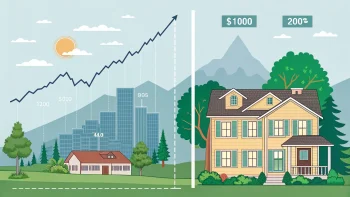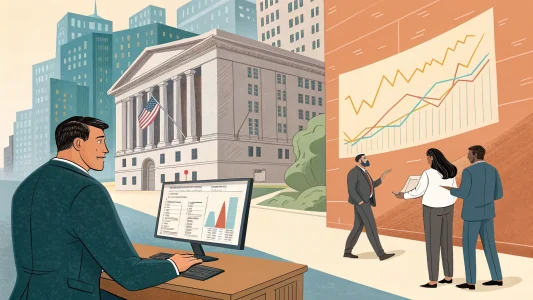This situation may soon present our government with a difficult decision regarding tariff revenue. The discussion centers on whether the collected tariffs must be repaid. This discussion raises questions about the government’s authority and the economic consequences of a possible court ruling. My analysis seeks to present the facts and the potential impact on our economy in an accessible manner.
Table of Contents
ToggleThe Constitutional Debate Over Tariffs
In recent events, a court ruled that the president’s use of tariffs might conflict with constitutional principles. This marks the second time a judicial decision has questioned the legitimacy of these tariffs. The decision challenges the notion that such fees can be imposed without due legal process. I saw this as a clear sign that legal limits have been reached.
The ruling suggests that the tariffs could become subject to refund if the current policies do not hold under the higher court’s review. This means that if the supreme judicial authority does not support the administration’s stance, the government may have to return the gathered funds. The situation raises a critical question about who holds the power to determine the fate of these tariffs: the executive branch or the court system.
View this post on Instagram
Economic Consequences of Refunds and Debt Issues
The potential obligation to return tariff revenue presents serious challenges for government finances. I noticed that if the government has to repay these tariffs, it would worsen our national debt. The concern is that as our debt grows, so too will the interest payments on that debt.
This situation creates a cycle. Higher debt leads to higher interest payments. Higher interest payments then put further pressure on our finances. The recent jump in bond yields reflects investors’ concerns about rising debt costs. In my experience, bond yields often serve as an early indicator of financial stress in government budgets.
Market Reactions and Immediate Effects
The market has reacted swiftly to the uncertainty. I observed that stocks have fallen sharply as investors braced for further economic instability. This sudden drop in stock prices is linked to fears that the government may face a financial shortfall.
Investors are wary of the risk that the tariff revenue might disappear after October 14. The current arrangements state that tariffs remain in place until that date. After October 14, the tariffs will no longer be collectible if the court’s decisions hold. This impending change has created a sense of urgency and concern among market participants.
Key Points in the Tariff Situation
- Constitutional Concerns: A court decision indicates that the imposition of tariffs in the current manner may violate constitutional guidelines. This is the second court ruling to raise this issue.
- Deadline for Tariffs: The tariffs are scheduled to remain active until October 14. After this date, the fees will be removed.
- Risk of Repayment: If the appeal to the supreme authority does not go in favor of the current administration, there exists a significant risk that the government will have to refund the tariffs.
- Impact on National Debt: A repayment obligation for the tariff revenue could exacerbate the already significant national debt. This, in turn, would drive bond yields higher due to increased interest payments on the debt.
- Market Reaction: Stock values have dropped notably as investors fear the financial implications of the ruling. Bond yields have jumped as a result of the mounting economic pressures.
These bullet points capture the core issues at stake. In my view, they are central to understanding both the legal and economic dimensions of the current debate.
Legal and Political Implications
The dispute over tariff revenue is not just an economic matter. It also touches on key political and legal issues. There is a debate about whether the president had the necessary authority to impose these tariffs without explicit legislative approval. My analysis shows that this controversy could set a long-lasting legal precedent.
Supporters of the tariff implementation argue that the fees are vital for national security. They claim that certain pressures require swift actions by the executive branch. However, critics see the measure as an overreach of executive power. I recognize that the outcome of this dispute will likely shape how future fiscal policies are implemented.
During these discussions, it is crucial to examine how these legal decisions affect our broader economic outlook. I often find that such legal judgments have a ripple effect on investor confidence and fiscal stability.
Potential Impact on Fiscal Policy and Government Finances
If the government is forced to repay collected tariff revenue, it may have to adjust its fiscal policies. This scenario could lead to spending cuts or increased borrowing to cover the shortfall. My perspective is that fiscal discipline will become even more critical if the repayment issue is confirmed.
Moreover, as the government’s debt load increases, the cost of servicing that debt will also rise. Rising costs could reduce the amount of money available for other public services. Investors and citizens alike may react negatively if the government appears financially overburdened.
In financial markets, even small signals of fiscal instability can cause significant reactions. The jump in bond yields that I observed is one such sign. It reflects a broader anxiety about the country’s long-term debt management and confidence in economic policies.
Analysis and Reflection on Market Trends
The current market behavior offers a window into investor sentiment. As stock prices fall, many analysts see these moves as a reaction to uncertainty in government policy. I have observed that investors often shift away from equity when they sense fiscal or political instability.
For many years, bond yields have been a barometer for economic health. The recent increases point to rising concerns about future interest obligations. I believe that understanding these trends is vital for anyone interested in both policy and market dynamics.
The market is a complex system governed by many factors. However, it is hard to ignore the connection between government fiscal decisions and investor confidence. The tariff debate is one example of how a policy issue can quickly translate into market volatility.
Considering the Broader Economic Picture
While the tariff debate forms one part of the economic story, it sits within a larger framework of fiscal challenges. National debt, government spending, and overall economic stability are interconnected. I have often observed that shifts in one area can lead to changes elsewhere.
The current situation forces us to ask questions about long-term financial management. How will the government balance its spending needs with the responsibility of handling the national debt? What policies are necessary to maintain market confidence and economic stability?
Answers to these questions may not be immediate or straightforward. However, the ongoing discourse highlights the importance of prudent fiscal measures. As debates continue, policymakers need to consider broad economic implications and public trust.
Speculations About Future Outcomes
The possibility of a refund obligation remains uncertain. The decision ultimately rests on the outcome of the appeal to the supreme judicial authority. I closely follow these events, knowing that policy outcomes can have lasting economic effects.
Some believe that national considerations justified the need for these tariffs. Others consider the measure a misuse of executive power. Observing these debates and legal procedures has led me to reflect on the balance of powers in our government.
This reflection prompts me to think about the broader implications for fiscal policy. What does this case reveal about our nation’s approach to economic management? How might future administrations approach similar issues after witnessing the consequences of current policies?
Investor Concerns and Market Sentiment
Investor sentiment is highly sensitive to news like this. Negative news regarding fiscal policy tends to make investors cautious. I noted the immediate adverse reaction in stock markets as uncertainty increased. Prices fell sharply as the market absorbed the potential risk of having to refund the tariffs.
This reaction reflects a larger pattern seen in times of policy uncertainty. Investors tend to seek safer options when the future appears unclear. The interest paid on national debt also becomes a larger burden if fiscal policies lead to increased borrowing.
Market dynamics remind us of the importance of clear and consistent policy measures. A lack of clarity can lead to rapid shifts in investor sentiment. In my discussions with colleagues, there is a shared understanding that consistent fiscal policies strengthen market confidence.
Personal Reflections on the Role of Policy in Economy
In my career, I have witnessed firsthand how policy decisions directly impact both markets and everyday citizens. The tariff case is a recent example of these direct links. I strive to provide clarity in complicated matters like these and help my audience understand potential outcomes.
This issue also serves as a reminder that every decision made at the government level has consequences. The decisions about tariffs and fiscal responsibility will affect many aspects of our economy. From national debt levels to the daily performance of stock markets, the impacts are tangible and measurable.
In offering this analysis, my aim is not to take sides but to present the facts and potential impacts clearly. I fully recognize that discussions about fiscal policies elicit strong opinions. However, clear and respectful dialogue is essential to reaching decisions that benefit our collective economic future.
The Road Ahead
Looking forward, the coming weeks will be critical. The decision to revert the collected tariff revenue depends on the outcome of the upcoming legal reviews. The market will continue to react as uncertainty remains in play. I am closely watching these developments with the understanding that they carry significant economic weight.
This analysis has shed light on the importance of identifying and understanding both legal and fiscal challenges. When government actions prompt debates about constitutional boundaries and financial implications, the effects are felt across the economy.
For investors, policymakers, and citizens alike, it is crucial to remain informed about these developments. Financial stability and market confidence depend on clear rules and effective governance. I urge everyone to stay attentive to these changes and consider how they might affect broader economic health.
In conclusion, the debate over tariff collection and potential refund has far-reaching implications. In my view, the situation underscores the need for careful fiscal management and accountable legal oversight. It is a reminder that every policy decision can influence a range of factors from national debt to market behavior.

















